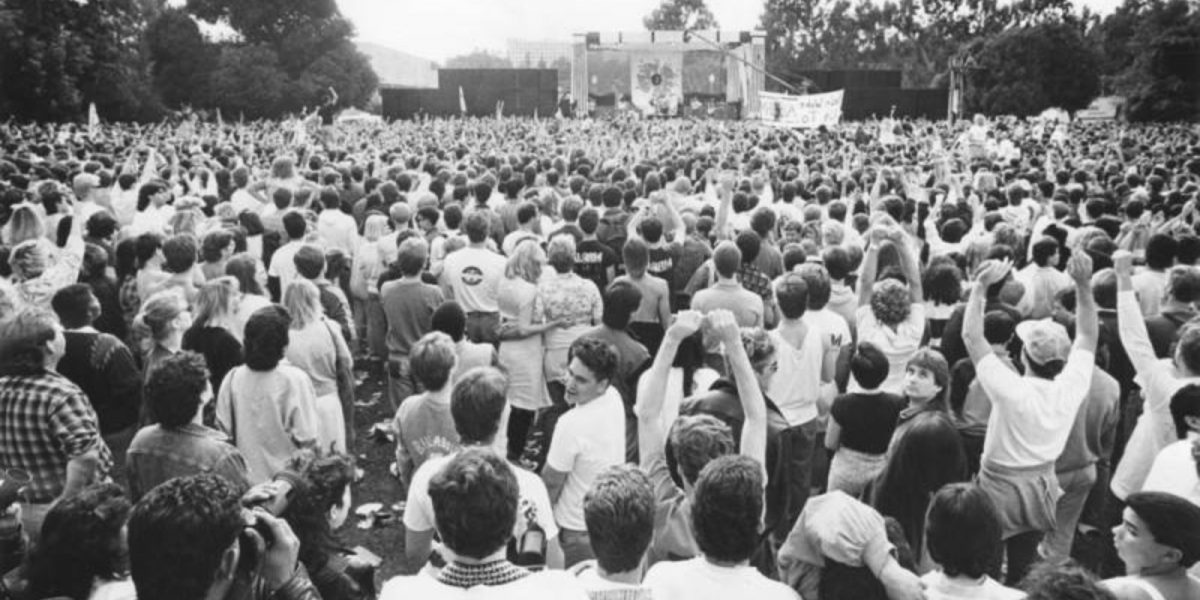Show Notes for Rebels and Revolutionaries:
Part 1. Children of the Revolution
You can find Mo Perkin’s work here.
Part 2. Hidden Figures
Wadjda is available on Netflix.
Mary Shelley is available on Hulu.
Haifaa’s film The Perfect Candidate will be release by Music Box film at some point in 2021 (you can keep tabs here).
Part 3. You Make Your Path By Walking
The moving-image collage for Grace Lee’s piece “You Make Your Path By Walking” includes clips from The Grace Lee Project (2005), American Revolutionary: The Evolution of Grace Lee Boggs (2013) and POV’s two-part documentary And She Could Be Next, which Grace co-directed with Marjan Safinia. More information on American Revolutionary can be found here.
And She Could be Next is currently streaming on PBS. And you can find out more information here.
Billy Woodberry
The following LA Rebellion films have been included in Los Angeles Public Library: Bush Mama, Welcome Home Brother Charles, Emma Mae, Sankofa, Illusions, A Different Image, and Spirits of Rebellion – adding to films already in circulation there like Killer of Sheep, To Sleep with Anger and Daughters of the Dust. It includes a non-circulating three-disc anthology of 25 short films, available for onsite viewing.
You can read a comprehensive history of the movement in “L.A. Rebellion: Creating a New Black Cinema” from UC Press (added to the Los Angeles Public Library collection).
A number of notable, in-depth articles and interviews with Billy Woodberry can be found online, including Film Quarterly and Milestone’s webpage for Bless Their Little Hearts (an interview conducted for UCLA Film and Television Archive in 2010 conducted by Jacqueline Stewart, Dr. Allyson Field, and Robyn Charles).
Films included in the opening remarks:
The Jazz Singer (1927), Broken Blossoms (1919), Citizen Kane (1941), Breathless (1960), Psycho (1960), One Flew Over the Cookoo’s Nest (1975), Spartacus (1960), Sweet Sweetback’s Baadasssss Song (1971), Little Women (2019), Real Women Have Curves (2002), Marie Antoinette (2006), October (1927), Metropolis (1927), Berkeley in the Sixties (1990), Battle of Algiers (1966), Dolores (2017), Walkout (2006), No (2012), Selma (2014), Malcolm X (1996), Gandhi (1982), Trudell (2005), Milk (2008), The Times of Harvey Milk (1984), On the Waterfront (1954), Norma Rae (1979), Dead Poets Society (1989), Hidden Figures (2016), Whale Rider (2002), Papillon (1973), Harold and Maude (1971), In the Heat of the Night (1967), Network (1976), Do the Right Thing (1989), Brazil (1985), The Matrix (1999), Sorry to Bother You (2018), The Piano (1993), Portrait of a Lady on Fire (2019), Babette’s Feast (1989), Rebel Without a Cause (1955), Cooley High (1975), Breakfast Club (1985).



